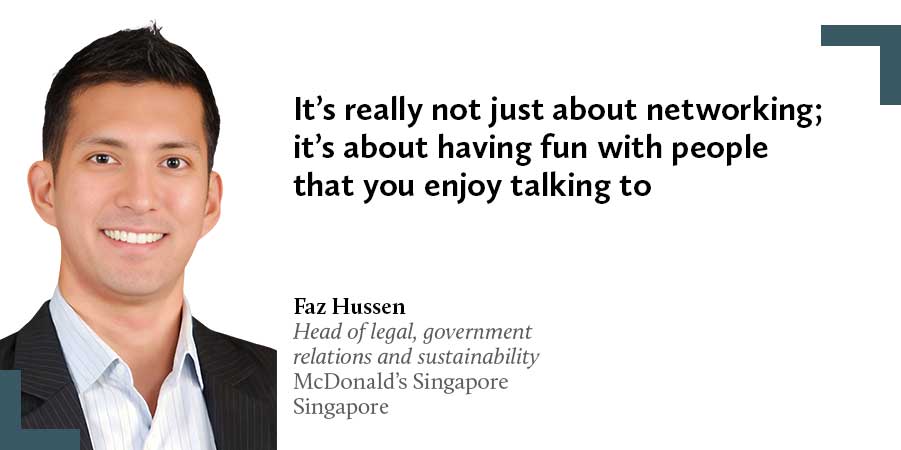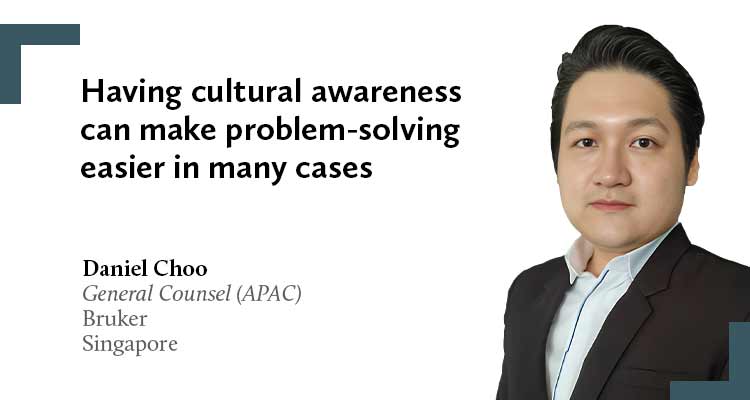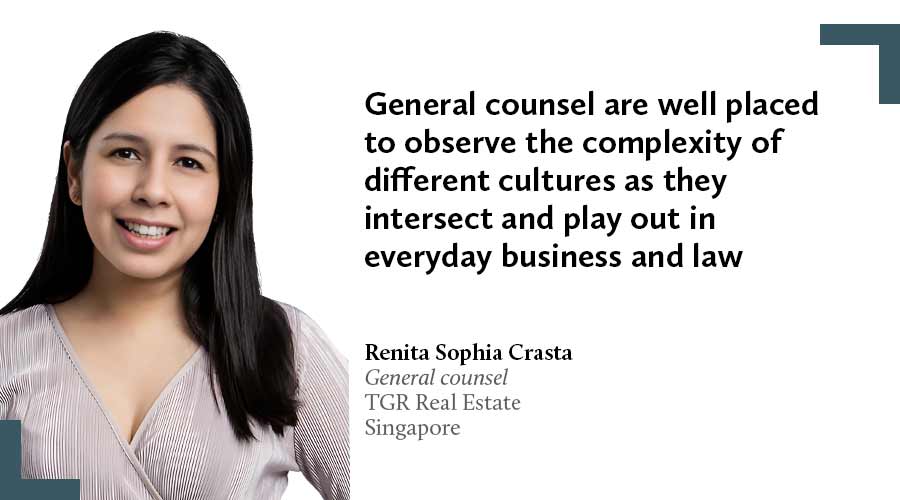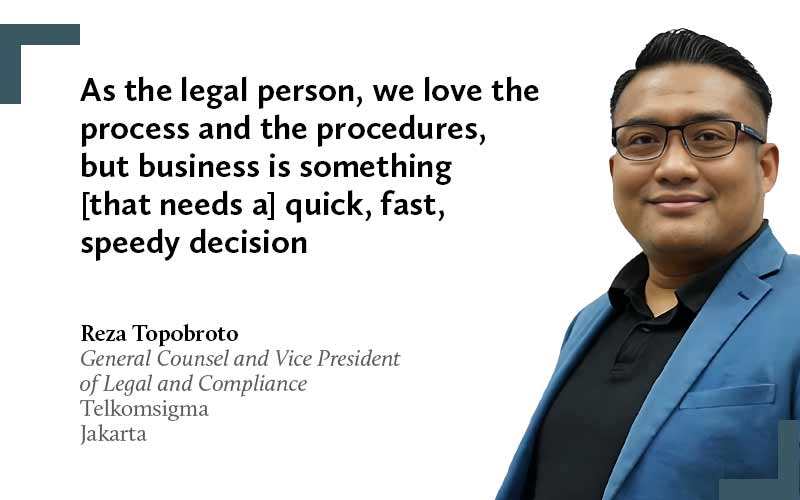As businesses expand across borders, general counsel share the journey and confront myriad legal tests. Those with experience say the power they bring to their companies is enhanced by interchanges of knowledge with peers. Putro Harnowo reports
The culture that successful general counsel bring to their companies can drive businesses far beyond the legal boundaries of expanded operations. Their knowledge and attitude is a battery of corporate power.
During the Singapore Corporate Counsel Association (SCCA) APAC Legal Congress held from 3-4 May 2023, Law.asia talked to many general counsel to get their insights on issues from navigating businesses going global to managing legal teams and assisting with foreign investment.
Having networks is crucial and, for general counsel, engaging with alternate peer groups can substantially benefit them with information about what other experts in different industries are up to. They can uncover a wealth of information, insights and knowledge that they might not attain from within the circles of their fellow in-house lawyers. This broadening of perspectives in turn helps create a more robust and nuanced understanding of their own legal landscape.
“I think as a general counsel, whether at small and medium enterprises or international firms … the most important thing that you need to do is to know your business. That’s the number one thing,” says Faz Hussen, head of legal, government relations and sustainability at McDonald’s Singapore.
Hussen says an effective general counsel should take the time to understand what makes the business work – what drives it. Otherwise, legal counsel are just overseeing the usual legal matters.
“I would even say a general counsel is a business partner,” he says. “As an in-house lawyer, if you have a really good general counsel or head of legal, you shouldn’t be looking at them as a lawyer who knows the business. You should see a businessman with a law degree or law knowledge.”
Hussen says that a good legal counsel needs to be aware of upcoming trends. For this reason, building a network is crucial, as other companies may identify threat trends before yours does so.
“Have the questions and be curious about things,” he says. “I also tend to find that it’s really not just about networking; it’s about having fun with people that you enjoy talking to.”
Navigating progress
Business expansion is complex and requires strategic planning. Legal counsel is responsible for ensuring compliance with laws and regulations, navigating legal systems and cultural differences, and dealing with legal challenges that arise.
In the diverse landscape of the Asia-Pacific, different jurisdictions have different ways of doing business, notes SCCA co-president Daniel Choo, general counsel (APAC) at the US high-performance scientific instruments and medical devices manufacturer Bruker, based in Singapore.
“There’s no one-size-fits-all solution to this, but I think the cultural part plays a huge aspect,” he says. “For instance, there may be similar rules [in many places], but the way of handling a specific matter would be somewhat different, culturally.”
In-house counsel are an embedded part of their organisations and must work with stakeholders across the business. Choo says legal counsel should understand that stakeholders will have different backgrounds to their own, and to each other.
“Having cultural awareness can make problem-solving easier in many cases”, says Choo.
SCCA co-president Renita Sophia Crasta, who is general counsel at TGR Real Estate, says there is much to be gained from Singapore’s strategic position in the region as a microcosm reflecting the interplay of a variety of cultures in Asia.
“General counsel are well placed to observe the complexity of different cultures as they intersect and play out in everyday business and law,” says Crasta.
“For example, I oversee the APAC business and, as we expand our business to different countries, it’s very important to have the right cross-cultural understanding; and in instances of doubt, to be able to have a network of fellow in-house counsel to connect us to the right partners across the region so that we can navigate all that we need to do.”
The role of in-house counsel has come a long way, says Crasta, with legal counsel having to keep abreast of ever-changing regulations and geopolitical events. While in-house counsel still need to have a business understanding, law firms with in-depth knowledge of different countries are often relied on to assist.
“I think our role, therefore, is to be the connecting bridge from the business to the law firms to ask the right questions, quickly digest the information and make it relevant for our businesses, especially in a time and culture-sensitive environment” she says.
Apart from law firm assistance, Crasta sees the broader community of counsel as a powerful tool for in-house counsel. Businesses often face similar challenges even when they are in different industries. Having fellow legal counsel share their insights on similar issues can benefit many parties.
“It is often easy to think that as in-house counsel we do not need to network or meet one another, as we do not do much business development in our direct roles,” says Crasta. “Nevertheless, the value of such relationships can lead to smoother processes and outcomes, and better learning for each of us, so I still actively encourage reaching out to connect with each other so that can move forward better collectively.”
Regarding recent trends, Crasta observes that there has been a great increase in the number of laws dealing with compliance, personal data protection and environmental, social and corporate governance (ESG).
“As with any new regulation, legal counsel play a pivotal role as we have to quickly be able to break down what the regulation means and then explain it to our business, the limits of each such regulation, and find practical ways to help our business to deal with and manage the same, while adhering to the laws of any particular country,” she says.
“I have often been amazed by the skills of our legal counsel when we are asked to find solutions to often complex problems, and the way that we are able to be the calm amidst turbulent waters.”
Crasta says she has great hope for the role of the legal counsel in future, evidenced by the fact that more and more counsel are also being invited to sit in investment committee and board meetings as active members of the board in their respective roles.
Team management
Managing and overseeing a legal team for smooth and efficient functioning is a crucial role for legal counsel. However, given the complexity, legal counsel must possess exceptional management skills to meet their team’s requirements.
For Reza Topobroto, general counsel and vice president of legal and compliance at Indonesian technology services provider Telkomsigma in Jakarta, a top priority is making sure the legal team is not trapped by inefficient structures.
“What I’m trying to say is to avoid having too many layers in the process,” he says. “As the legal person, we love the process and the procedures, but business is something [that needs a] fast, speedy decision. We should be able to balance between the business interest and providing a quick and creative solution without compromising integrity and compliance.”
Integrity is one of Topobroto’s biggest considerations for choosing external advisers. “Legal skills and knowledge are mandatory, but that’s not everything. Reputation and integrity are absolutely required,” he says. “It’s not about the law firm, but the partner or the person who is going to have to serve me as the representative of the company, and whether I feel we can work together.”
The SCCA’s Choo sees team engagement as the key point for solid legal teams, especially if residing in different jurisdictions. However, engagement could also mean different things to each individual.
“For instance, while some team members may prefer to focus solely on their current roles, others may be interested in expanding their responsibilities and taking on additional tasks,” says Choo. “Therefore, engagement also encompasses individuals who enjoy participating in frequent networking or social activities with team members, while acknowledging that others may not be as enthusiastic about such engagements.”
Crasta agrees that purposeful work in a welcoming environment is the crux of an efficient legal team. As work takes up so much time, it needs to be meaningful and respectful, as people are prepared to spend more time with their colleagues if in the right manner and environment.
She recalls that reaching out to teams in different countries was particularly challenging during the pandemic due to remote communication. Leaders had to work harder to ensure that their teams were not disconnected, were given the right amount of encouragement, and were also encouraged to watch out for each other’s well-being. The goal was to connect the team and ensure that they were able to feel well supported in whichever situation they were facing.
“I do believe that another extension of our professional leadership role is indeed to care for the well-being and long-term learning and development of both ourselves as well as our teams,” says Crasta. “All this goes hand in hand with developing a team that believes in themselves for the long run.”
You must be a
subscribersubscribersubscribersubscriber
to read this content, please
subscribesubscribesubscribesubscribe
today.
For group subscribers, please click here to access.
Interested in group subscription? Please contact us.

























